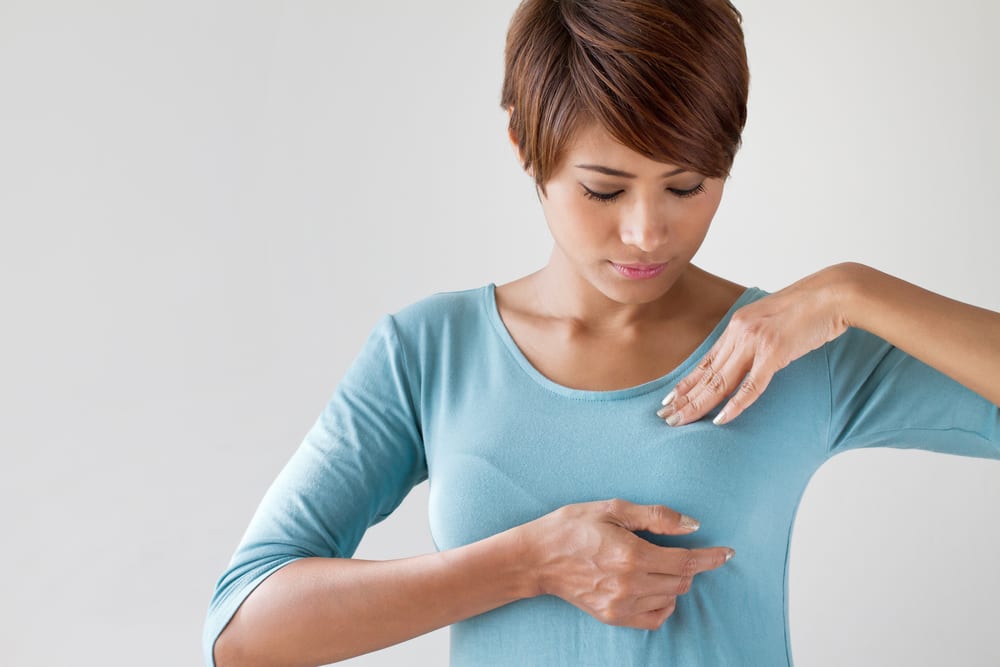As October is Breast Cancer Awareness month, many of us will bring attention by wearing or posting pink ribbons to our Instagram or Facebook pages, or some of us may choose to raise and donate money for research, all in honor of the cause. In recognition of the friends and patients in my life who have battled breast cancer, I feel compelled to share ways to improve your breast health on a daily basis.
Enjoy a balance of sleep, exercise and healthy diet. Not necessarily earth shattering information, but probably more important to highlight is the benefits these have on our health at a cellular level. First, by getting plenty of sleep. 7-8 hours a night of uninterrupted sleep is the sweet spot for most people to ensure we function soundly throughout the day. If you read my blog last month about Oxidative Stress And DNA Testing you would have learned that the higher your antioxidant status the better you can fight things like chronic disease and even cancer. When it comes to mental health and leading a more stress free life, anything we can do on a daily basis to reduce our stress level, is a recipe for success (1). A whole foods diet, with plenty of organic vegetables and fruits, a balance of organic, grass fed meat is chock-full of vitamins and minerals while low in inflammatory triggers. Following the “Dirty Dozen – Clean Fifteen” provides an easy guideline to help you choose your fruits and vegetables more wisely. Lastly, but so important is regular exercise. The recommended 5-6 hours a week is all we need to get in to help prevent many chronic disease, including diabetes, heart disease, Alzheimer’s disease, and cancer (2).
Optimize Your Vitamin D and Iodine. The best way to get your vitamin D is from safe exposure to the sun; however, 90% of my patients even with regular sun exposure cannot get there levels of vitamin D to an optimal range. The idea is to maintain a therapeutic level between 50-70 ng/ml. Oral Vitamin D3 in a liquid form is easily absorbed. A daily oral dose between 2,000 to 4,000 IU for a few months usually does the trick, but be sure to get your levels tested after a few months. Vitamin D is fat-soluble and can build up in our tissue where excessive doses can build up to toxic levels.
Iodine has shown to prevent the ability of estrogen to adhere to estrogen receptors in the breast. Based on this evidence iodine deficiency has been linked as a causative factor in breast cancer (3). It is also an antioxidant, so I will often recommend that individuals increase iodine-rich foods in their diet or for those with patients fibrocystic breast disease use of oral supplementation. A study done with women who had fibrocystic breast disease received daily supplements of iodine (70 to 90 mcg I2/kg body weight) or placebo for 6 months. At treatment completion, 65% of the women receiving iodine reported decreased pain compared with 33% of women in the placebo group (4).
Clean living. Reducing your toxic load, especially when it comes to certain endocrine disrupting plasticizers, like bisphenol-A (BPA) or (BPS) and phthalates. Reducing your exposure can come when you do no heat or microwave food in plastic containers. Pass on hot beverages or leftovers that come in Styrofoam containers. Instead bring personal stainless steel coffee or ceramic thermos/mug or take home glass container. Unfortunately, high levels of BPA are found in most thermal receipts so be sure to ask the clerk if the receipt is BPA free. Instead opt for electronic version or if you need the receipt avoid contact as best you can by having a designated envelope to tuck them in.
Even though the breast cancer morality rate has decreased in recent years, the number of individuals with breast cancer has not. Most of this is due to early detection. So it goes without saying, monthly breast exams are very important and should be a part of your breast health routine. I suggest choosing the day of the month you were born and while in the shower or bath. Since I have more than 10 friends and countless patients, diagnosed with various grades of breast cancer, the importance of looking at your day to day life and ways to decrease you exposure to contaminants that are contributing factors and introducing nutrients to protect your breast is so vital.
–Dr. Christina Youngren
- Why Zebras Don’t Get Ulcers by Robert M Sapolsky.
- Fournier, Agnes et al. Recent Recreational Physical Activity and Breast Cancer Risk in Postmenopausal Women in the E3N Cohort. Cancer Epidemiology, Biomarkers & Prevention. 2014.
- Iodine, Why You Need It, Why You Can’t Live Without It, by David Brownstein MD Fourth Edition 2009, Medical Alternatives Press.Ghent WR, Eskin BA, Low DA, Hill LP.
- Iodine replacement in fibrocystic disease of the breast. Can J Surg. 1993 Oct



